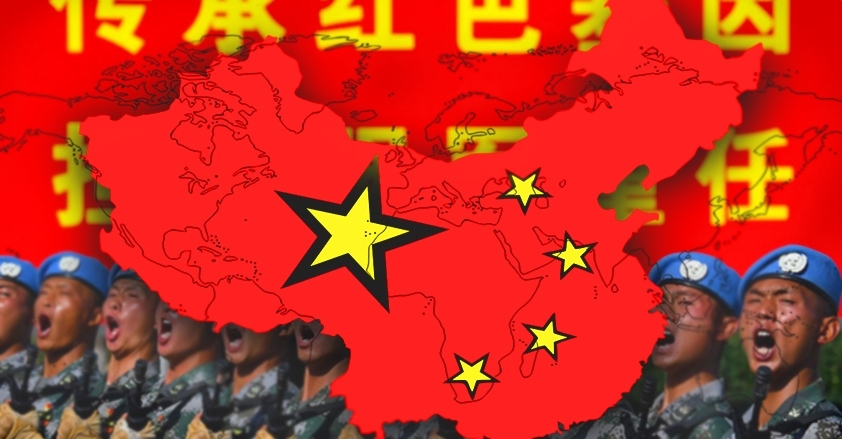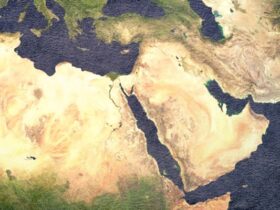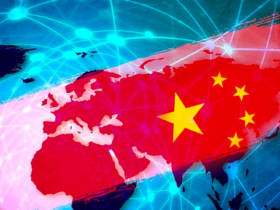As I am writing these lines, the annual session of the National Congress of China is about to begin. The Chinese People’s Political Consultative Conference, the supreme advisory body of the country, gathered all of its members for the important meeting. The annual session of the National Congress, the highest legislative organ, and the Chinese People’s Political Consultative Conference, are jointly called the ‘Two Sessions (National Lianghui)’. Thousands of representatives and consultants are gathering in Beijing for one of the most important political events in China.
MAIN AGENDA
The ‘Two Sessions’, which are generally assembled in early March every year after the Chinese New Year, have been postponed for two months due to the Coronavirus outbreak. Thus, the sessions have two main topics. First, to prevent the coronavirus outbreak from relapse, and to create a secure social life and work environment for people to return their jobs. Second, to revive the economy and stabilize it. During this critical period, conducting ‘Reform and Opening-up’ policy more discreetly, and deepening reform in the financial system, in which the market is the determinant in distribution of sources, are going to be evaluated, and discussions will take place about an amendment to civil law.
Xi Jinping’s goal for #China was clearly articulated in his speech at the 19th National Congress of the CCP 2017, where he elaborately described his two stage plan in which “socialist modernisation” is to be realised by 2035. Read @AnantSMann: https://t.co/6rOHCejfwd pic.twitter.com/JkRta4YAIp
— ORF (@orfonline) June 5, 2020
THE IMPORTANCE OF 2020
2020 is a very important year for China. It is the last year of the 13th Five-Year Plan (2016-2020) and the preparation year for the next Five-Year Plan. More importantly, 2020 is a critical year for China to accomplish its ‘first centenary’ goal. China has declared that they will reach the level of a “moderately prosperous” society on the 100th anniversary of the Communist Party of China, i.e., 2021, and eliminate absolute poverty entirely. Chinese leadership has promised that they will accomplish ‘modern socialist society in all respects’ by the end of the 100th anniversary of the People’s Republic of China, i.e., 2049. Xi Jinping identified the ‘second centenary goal’ in his report to 19th CPC National Congress: “a prosperous, democratic, culturally advanced, harmonious and beautiful country.”
FROM CONFUCIUS TO THE CPC
A “Moderately prosperous society” is a term with Chinese characteristics. Its gist derives from the philosophy of Confucius. It is used to define a society, which mainly consists of the middle class, and which has achieved happiness.
It might better be interpreted as a ‘well-off’ society. It describes a social system in which people live in relative comfort under normal circumstances. The word ‘Xiaokang’ (小康) entered the political terminology primarily through the Chinese leader, Deng Xiaoping, who announced that he would reach a Xiaokang society as the terminal aim of Chinese modernization in 1979. The ‘Xiaokang society’ term is preferred to explain the idea of balancing economic growth with social equilibrium and environmental protection. The term of Xiaokang revived as a criticism of “rapidly enrichment and focusing on making money” policies, which were conducted during the periods of Jiang Zemin as a General Secretary and President. Philosophically, the society of Xiaokang acknowledges the need for economic growth to prosper on the one hand, but on the other, it sees the need to distribute this prosperity comprehensively. As a result of these debates, “the society of Xiaokang” was again popularized by Hu Jintao, General Secretary of the CPC and President between 2002 through 2012. Hu used this term to explain the economic policies that aimed to materialize more egalitarian distribution of wealth. The aim of reaching a moderately prosperous society was set during this period.
Additionally, the goal distribution of income in China was also determined to be in the shape of olive. They aim to eliminate the gap in the distribution of income between the poorest and the richest.
Xiaokang is also the name of a 6-monthly journal which is a branch of Qiushi, the central theoretical organ of the CPC. The journal, being published since 2004, focuses mainly on the political and economic development in China.
WHAT DOES IT MEANS FOR CHINA AND THE WORLD?
Prof. John Ross, a British academician living in Beijing and giving lectures in Renmin University, made interesting statements in his article in which he evaluated what China achieving “moderate prosperity” means for itself and the world. According to Prof. Ross’ calculations, if China successfully attains “moderate prosperity”, 62% of the world’s population will be in countries with a lower GDP per capita than that of China. At present, only 19% of the world’s population has higher per capita GDP than that of China.
China has overtaken almost all of the developing countries including Russia, India and Brazil. The level of economic development has become higher than that of most of the countries in Eastern Europe. Considering that the per capita income from Gross Domestic Product is an important indicator of the level of economic development, life standards, and enhancing social standards of a country, the scientific value of that aim can be better understood.
Internationally almost three quarters of life expectancy, the single most sensitive and all-round indicator of human development, is explained by per capita GDP. While life expectancy in a low-income economy is 61 years, in a high-income economy, it is 81 years.
THE CPC HAS PROLONGED ITS PEOPLE’S LIVES
In 1949, when the People’s Republic of China was created, China was almost the world’s poorest country. In 1950, only 10 countries had lower per capita GDPs than China. In 1949 China’s life expectancy was 35. From 1949 to 1978 China achieved a “social miracle” without precedent in world history. From 1949 until Mao Zedong’s death in 1976, i.e., 27 years, China’s life expectancy skyrocketed from 35 to 64. This great leap forward was made possible by the Chinese Revolution. Prof. Ross also drew attention to the fact that there has never been such a sustained rapid increase in life expectancy in any other major country in human history. The reason for this is that the growth rate of China between 1949 through 1978 was almost the same as that of the rest of the world combined. Hence, the secret is socialism!
THE WORLD’S MOST RAPIDLY GROWING ECONOMY
As is well known, after “Reform and Opening Up” were put into practice under the leadership of Deng Xiaoping in 1978, China’s economic growth became the world’s highest. According to World Bank data:
– Between 1978-2015 China’s annual average growth rate was 9.6% compared to a world average of 2.9% – China’s growth rate was more than three times the world average.
– As China’s population growth was relatively slow, China’s global growth lead in per capita GDP was even greater. In 1978-2015 China’s annual average per capita GDP growth was 8.6% compared to a world average of 1.4% – China’s per capita GDP growth rate was more than six times the world average.
Prof. Ross righteously stated that if it is measured according to ‘purchasing power parity’, China’s both annual growth rate and annual per capita income will reach greater rates.
CONCLUSION: THE PROSPERITY OF CHINA CONTRIBUTES TO THAT OF TURKEY
In previous articles, we examined China’s alleviation of poverty. In this article, we have explained the aim of ‘moderately prosperous society’. Is this a ‘the rich man’s wealth tires the poor man’s jaw’ situation? Hardly. The increase of the prosperity of China reduces the poverty rate for the entire world. This is because China is pursuing development by sharing not only domestically but on the world scale at large. The Development of China simultaneously serves to increase prosperity all over the world. It essentially causes developing countries to enhance their prosperity as well. The main slogan of the Belt and Road Initiative, which Xi Jinping, the wise leader of China, offered to humanity, exhibits this philosophy at one glance: ‘Developing by sharing!’
The ‘Moderately Prosperous Society’, which is the mark of fastest development in human history, is appropriate for the glory of the 100th age of the Communist Party of China. The word of communism in Chinese language means to share and solidarity.

















Leave a Reply